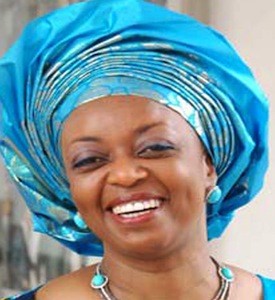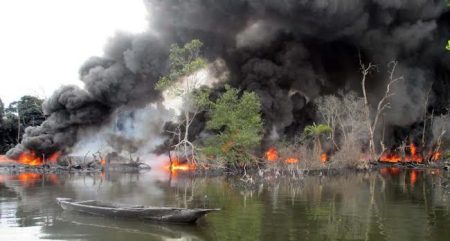 24 July 2013, Lagos – The Independent Petroleum Marketers Association of Nigeria, IPMAN, has called for its inclusion on the board of the yet-to-be created Downstream Petroleum Regulatory Agency, DPRA, in the Petroleum Industry Bill, PIB.
24 July 2013, Lagos – The Independent Petroleum Marketers Association of Nigeria, IPMAN, has called for its inclusion on the board of the yet-to-be created Downstream Petroleum Regulatory Agency, DPRA, in the Petroleum Industry Bill, PIB.
National Chairman of IPMAN, Alhaji Abdulkadir Aminu, who made the appeal in his presentation to the senate joint committee on PIB noted that both IPMAN and the Major Marketers Association of Nigeria, MOMAN, are currently on the board of the Petroleum Products Pricing and Regulatory Agency, PPPRA, and urged that it, IPMAN, should maintain her board status in all the relevant petroleum agencies as it were, since it is a major stakeholder in the downstream sector.
The PPPRA is expected to be replaced with the proposed DSRA when the PIB eventually comes into force.
Aminu said: “It is a fact that IPMAN and MOMAN control downstream sector so, our exclusion (in DPRA) is like shaving somebody’s head in his absence”.
Aminu who also hinted of IPMAN’s intention to build a functional refinery, but on the condition of a clear-cut policy on crude oil procurement and pricing.
He commended the Nigerian National Petroleum Corporation, NNPC, and PPPRA for steady and sustained supply of petroleum products over a period of time, adding that the association would continue to support efforts to keep supply of petroleum products steady.
“IPMAN is calling for refurbishment of refineries. If NNPC want to divest, IPMAN is interested in partnering with NNPC in this regard. IPMAN wants to build a refinery; we want a clear cut policy on crude procurement and pricing. IPMAN also want an interest free loan from the government to be repaid back between 10 to 15 years,” he said.
He further asked for subsidised crude price for the planned refineries for internal consumption while refining products for export should be at international price.
On the payment of bridging claims to marketers by the Petroleum Equalisation Fund Management Board, PEF, as proposed in the PIB, Aminu stated the association was concerned about the provision in the PIB that stipulated that “where the government decides that petroleum product market have been effectively deregulated, the minister shall take the required actions to ensure that the Equalisation Fund ceases to exist and its assets and liabilities transferred to the government to be controlled and managed by the ministry and at such time the provision of the section of this Act relating to the Equalisation Fund shall stand repealed”.
He added: “The implication of this is that in the northern, eastern and some parts of western region of the country, the price gap of each of the petroleum products cannot be less than between N10 to N15 per liter compared with the coastal areas prices because of transportation cost. This is going to be a great pain to the poor masses and the consuming public living in far away coastal areas.”
Aminu also noted while the power of the expected DPRA is not being challenged, determination of tariff methodology should however be agreed on by stakeholders, adding that the system of stakeholders’ involvement in tariff methodology has worked efficiently in the PPPRA to determine product pricing template and PEF for equalisation fund.
“Open access operation should be structured in such a way that jetties, loading facilities and storage facilities in the 21 NNPC depots, jetties and other facilities are not monopolised or skewed against other operators.
The experience of IPMAN is that Weight and Measure Department under the Ministry of Trade, Industry and Investment and Department of Petroleum Resources, DPR, under Ministry of Petroleum are monitoring prices and measurement. Since this PIB is a holistic bill to harmonies duplicated functions in the oil industry, one agency should be saddled with the responsibility of monitoring prices, metering of pump and other facilities at retail outlets to avoid duplication of functions, he added.
– Chineme Okafor, This Day



